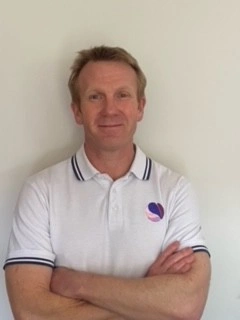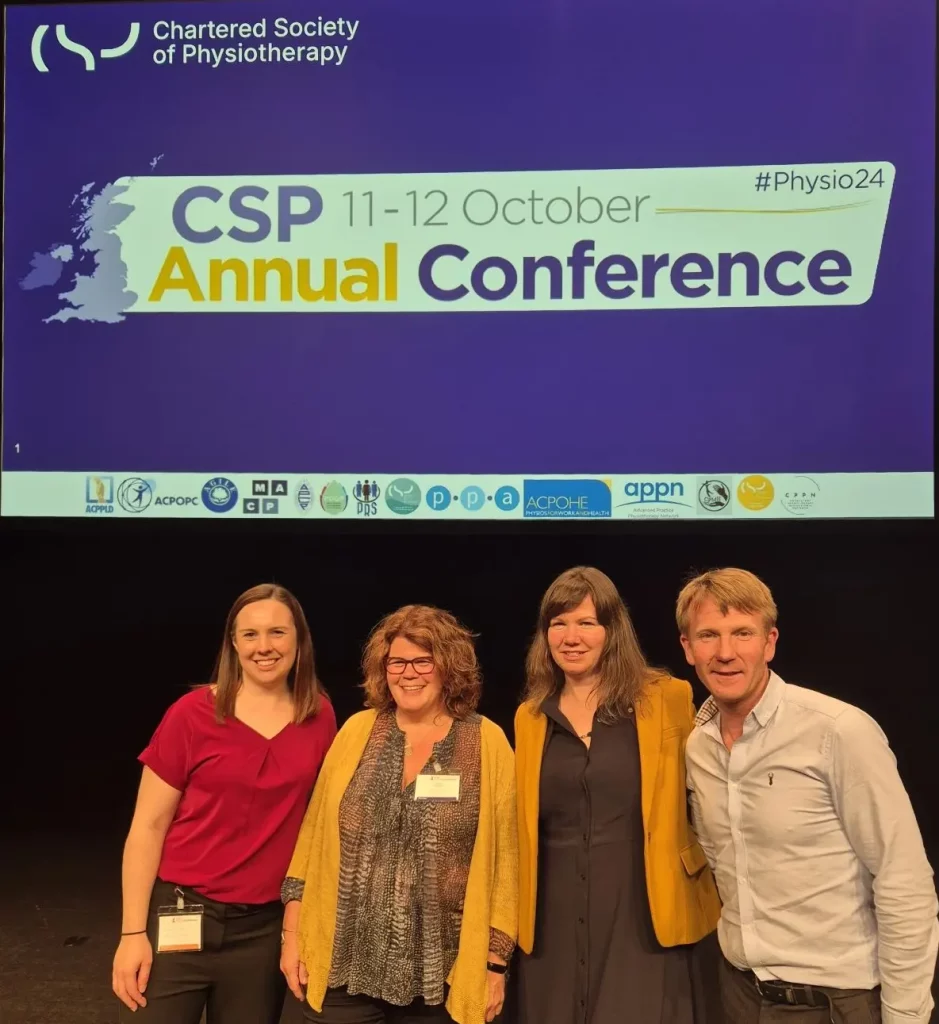Life as a physio in prison healthcare
Physiotherapist Paul shares how moving into prison healthcare transformed his career.

Physiotherapist Paul shares how moving into prison healthcare transformed his career.

Physiotherapist Paul shares how working in prison healthcare has been one of the most rewarding parts of his career.
“In 2020, I was working in private practice when COVID-19 hit. Like many others, I found myself worrying about job security. Around that time, I saw a role advertised in my local prison and knew it would be interesting and different.
I started small- just a couple of days a month at HMP Winchester. I found that the environment was like nothing I’d experienced before. It was challenging, yes, but full of opportunities to make a real difference to patients.

Over the next few months, my caseload grew, and soon I was supporting two other prisons, HMP Ford and HMP Lewes. Each setting was unique, with its own community and character, and that variety was incredibly stimulating.
Eventually, I realised I enjoyed this work far more than private practice. The environment constantly kept me learning, engaged and interested. No two days were ever the same and every patient story was different.
Physiotherapy wasn’t my first career. I actually joined the Royal Navy straight out of school and spent 12 years serving, eventually becoming a physical training instructor. After years of helping people push their limits physically, I became increasingly interested in how exercise could help people recover, not just perform.
At 30, I decided to retrain as a physiotherapist. Over the years, I’ve worked in the NHS, professional football, and with the Army, Navy and Royal Marines, before moving into private practice. Each of those roles taught me something different, but prison healthcare has probably been the most rewarding of them all.
One of the best parts of working for Practice Plus Group is the autonomy we’re trusted with. Of course, we work within professional standards and national guidelines, but there’s a lot of freedom in how we approach care. You’re not micromanaged. That freedom lets me tailor my approach to each patient’s needs.
While a lot of the work can feel independent, you are never isolated. There is a strong sense of community across the Health in Justice service. We meet in person a few times a year, and technology makes it easy to connect for training or catch-ups. Within each prison, I am also part of a supportive primary care team who truly value the role of physiotherapy.
Practice Plus Group has been great in supporting my professional development and encouraging me to pursue my own research.
A few years ago, I became involved in a company project exploring how physiotherapy could support the safer de-prescribing of pain medication in prisons. We began developing pain management programmes focused on physical activity and rehabilitation without dependence on medication.
This project sparked my interest in research and with my line manager’s support, I secured an NIHR Research Initiation Internship, completing a six-month project on the challenges of persistent pain within a remand prison.
That internship became a stepping stone to something much bigger. I’m now pursuing Doctoral Fellowship at the University of Exeter, supported by the Wellcome Trust and the School for Primary Care Research. My PhD explores how physical activity can support people as they reduce or come off pain medication.
None of this would have been possible without the incredible encouragement and backing of Practice Plus Group; especially my line manager, the Director of Medicine, and our national Primary Care Lead. Their belief in the value of physiotherapy within Health in Justice has been instrumental in helping me take this next step.
A recent highlight was presenting my research at the National Chartered Society of Physiotherapy Conference in Manchester. Standing on stage in a huge auditorium, speaking at a national event was an absolute once in a lifetime experience.

I have become a better listener. My consultations are now more trauma-informed, more empathetic and patient-led. I spend more time understanding where people are coming from and what they’ve experienced. That approach makes a huge difference in how I support my patients.
Working in prisons has made me more compassionate, more curious, and more aware of how social context shapes health.
After five years in Health in Justice, I can honestly say it has been life changing. It has given me nothing but growth.
If you are a physiotherapist looking for something that challenges you and gives you the chance to make a genuine impact, I would absolutely recommend joining Practice Plus Group’s Health in Justice team. It’s a role that changes how you see people, and how you see yourself.”
